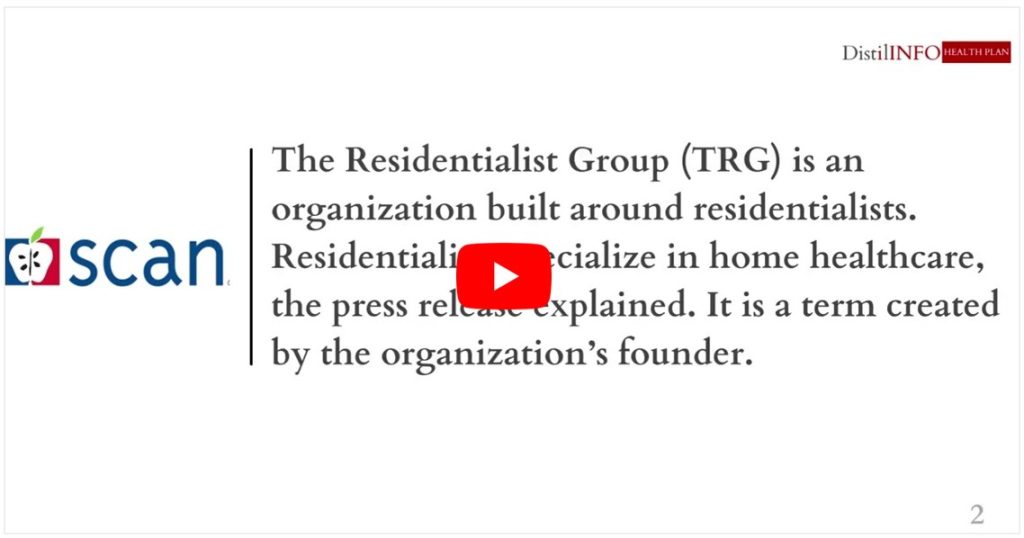
SCAN Group has acquired an organization that delivers home healthcare services to seniors in the group’s first acquisition in company history.
The Residentialist Group (TRG) is an organization built around residentialists. Residentialists specialize in home healthcare, the press release explained. It is a term created by the organization’s founder.

“We are excited about adding TRG to our portfolio and view our first-ever acquisition as an investment in the future of SCAN,” said Sachin Jain, MD, president and chief executive officer of SCAN Group and SCAN Health Plan. “Not only will it help further SCAN’s mission to keep seniors healthy and independent, but it will also bring greater efficiencies to our work as we expand our in-home clinical delivery capabilities.”
SCAN Group intends to use TRG’s services to bolster HealthCHEC, its in-home care program. By bringing TRG and HealthCHEC’s services together, the group will introduce a new home healthcare medical practice, Homebase Medical.
Homebase Medical will offer a range of care options in the home, including palliative care, chronic disease management, and personal health assessments.
“TRG was a pioneer in providing care to vulnerable people in the home environment, and we’re proud to build on that legacy as we launch Homebase Medical,” said Dwight Brown, chief executive officer of Homebase Medical. “With SCAN’s commitment to solving the health needs of older adults and TRG’s hands-on experience providing care, we’re planning to redefine what it means to provide quality, wrap-around services to older adults while improving the quality of their lives.”
TRG serves southern California and the greater Philadelphia regions. Once TRG and HealthCHEC combine to form Homebase Medical, the practice’s services will be available to SCAN Health Plan members. The practice is payer-agnostic, so members of other health plans can also receive support from Homebase Medical.
Prior to this announcement, the health plan announced that it would be expanding its Medicare Advantage plan’s footprint, making it accessible to around five million more seniors. The plan extended into Arizona and Nevada and added more counties in California, leaving the health plan with a total of 17 markets in three different states.
This was the first time that the health plan’s reach went beyond the borders of California.
At the same time, the payer introduced a geriatric primary care medical group that offered its services through virtual care and home healthcare. Additionally, the payer launched Healthcare in Action, a medical group designed specifically to serve individuals with unstable housing.
Like many payers that serve seniors, the health plan is emerging from a particularly challenging time. Seniors were particularly vulnerable during the coronavirus pandemic and payers had to shift many services to virtual care or home healthcare models in order to ensure members’ access to care.
However, health plans have seen some improvements in the past year. For example, in August 2021, SCAN Health Plan reported that disparities in coronavirus vaccine administration had decreased significantly.
As the coronavirus pandemic becomes more manageable and the end of the public health emergency appears to be on the horizon, health plans like SCAN Health Plan have supported research and policy initiatives that would make permanent or expand the flexibilities that enabled home healthcare and virtual care to flourish during the pandemic.
Source: HealthPayer Intelligence

